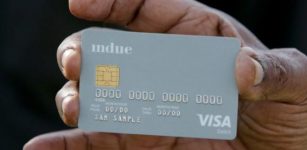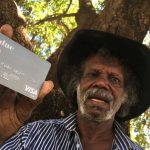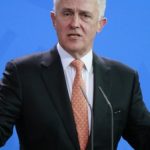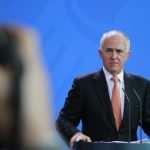Cashless Welfare Card – National Rollout Set to Begin

Thousands of Queenslanders and Western Australians will be the next to have their Centrelink payments quarantined, as the federal government continues its rollout of the cashless welfare card.
The Turnbull-led government announced plans to implement the card next year in both the Wide Bay region in Queensland including Bundaberg and Hervey Bay, and the Goldfields region in Western Australia.
As previously reported, the scheme involves 80 per cent of a recipient’s benefits being quarantined – so it cannot be withdrawn as cash. The card is accepted by several retailers and other organisations to pay for essential goods and services such as rent, food, clothing and utilities. The card cannot be used to purchase items that are considered by the government to be non-essential; including alcohol, gift cards and gambling credits.
The card was initially targeted towards predominantly Indigenous communities in the Kimberley region and South Australia, and hailed by the government as a ‘great success’
Social Services Minister Alan Tudge claims there are “strong independent evaluation results” which prove initial trials were effective in reducing alcohol consumption, drug use and gambling.
However, the card has not been without controversy.
The initial evaluation results showed that only 22 percent of users reported that the card made their lives better, and about a quarter said they were drinking less alcohol. 31 per cent reported being better able to care for their children and save money, which was one of the main purposes of the card, and 49 per cent said the card had made their lives worse.
Perhaps of greater concern are figures which suggest the card has led to an increase in crime. Figures for the Ceduna area in South Australia, for example, point to a 120 per cent increase in aggravated robbery and a 51 per cent increase in fraud, deception and related offences over the course of the trial.
The government seems to be ignoring these figures in its desire to have greater control over peoples’ lives across the nation.
Wide Bay, Queensland
Bundaberg, where the card will be introduced at the start of next year, is nicknamed the “dole capital of Australia” as it has one of the highest unemployment rates in the nation.
Joblessness in the region appears to be intergenerational, with figures suggesting that 90 percent of those in their thirties who are on government benefits had a parent who was also on welfare during the past 15 years.
The government says it hopes to break this cycle, encouraging people to find work. However, those in Canberra have been criticised for ignoring the fact that jobs are hard to come by in the region, as businesses continue to suffer.
Western Australia
The Goldfields region in Western Australia is also slated to receive the card. Approximately 3,400 of the areas 40,000 people will be placed on the card, although others can ‘opt in’ if they so desire.
But local social welfare workers have their concerns about whether the card will be effective. They have expressed fears that people with addictions will sell their cards for less than their value, in order to purchase alcohol or other drugs, or to gamble. Others, they fear, will simply resort to crime to support their habits.
Social workers in areas where the cards have already been introduced have described horrendous accounts of young people engaging in prostitution, committing crimes and begging on the streets to fund their habits.
While it seems that schemes like these can contribute to crime and create black markets, there’s also an argument about human rights, with many recipients angry that they are not able to make their own decisions about money, which impacts their feelings of both autonomy and dignity.
Social workers are adamant that for the card to have any chance of meeting its stated objective, there needs to be a broader network of support services around it to ensure that the most vulnerable people are not put further at risk.








